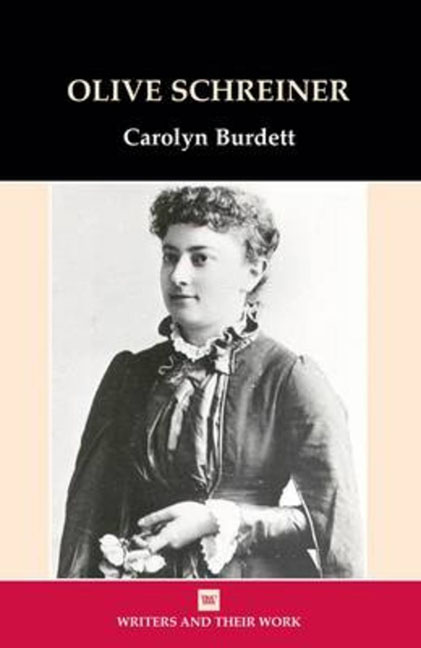Book contents
- Frontmatter
- Dedication
- Contents
- Acknowledgements
- Biographical Outline
- Abbreviations
- Introduction
- 1 Evangelicalism, Freethought and Love: Undine and The Story of an African Farm
- 2 Sex Work: Woman and Labour, Stories and Allegories, From Man to Man
- 3 A Returned South African
- Notes
- Select Bibliography
- Index
3 - A Returned South African
- Frontmatter
- Dedication
- Contents
- Acknowledgements
- Biographical Outline
- Abbreviations
- Introduction
- 1 Evangelicalism, Freethought and Love: Undine and The Story of an African Farm
- 2 Sex Work: Woman and Labour, Stories and Allegories, From Man to Man
- 3 A Returned South African
- Notes
- Select Bibliography
- Index
Summary
Schreiner returned to South Africa in October 1889 and, apart from brief visits to England in 1893 and 1897, she lived in the country of her birth until the end of 1913 when she travelled to Europe, seeking treatment for her heart condition. She was in England during the First World War, returning to South Africa in 1920, where she died, aged 65. South Africa fascinated her, and at the beginning of the 1890s she began to write essays on the country, its people and politics. These were explicitly conceived as the thoughts of a ‘returned’ South African, seeing her country anew, and seeking to understand and theorize the interdependence of its racial and ethnic groups. A new phase in Schreiner's life had begun, and her writing practices partially changed as a result. As well as a series of long essays on Boer life and South African history, many of her important publications over the next twenty years responded to specific and urgent events such as the Anglo-Boer war of 1899–1902, or the legislation which unified the separate states of South Africa in May 1910. Responding to the tumultuous course of South African's history called for new types of writing which fused polemic, journalism and literary practice. Through her political allegiances and activities, her probing, exhortatory letters, her relations with family and friends and in her polemical writing and her fiction, Schreiner sought to pinpoint, analyse and contest the structural inequalities which modernization entrenched. Her writing became a form of hand-to-hand combat with daily events.
In later twentieth-century apartheid South Africa Schreiner was attacked for being, in the words of the novelist Nadine Gordimer, ‘the broken-winged albatross of white liberal thinking’. Anti-apartheid politics of that period were dominated by a Marxist analysis that generally condemned liberalism. However, more recently, liberal ideas have begun to be reassessed and, in turn, Schreiner's rhetorical strategies and forms of analysis have been re-examined and more generously judged. It is clear to see in her writing that she became increasingly conscious of how the colonial context of South Africa produced distinctive effects in relation to issues which had been important throughout the 1880s – issues of gender, class, political power and labour.
- Type
- Chapter
- Information
- Olive Schreiner , pp. 63 - 87Publisher: Liverpool University PressPrint publication year: 2005



